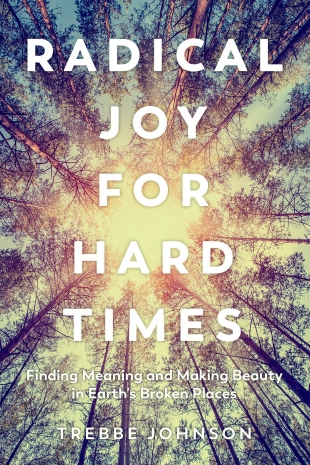"The subject of beauty makes some people uncomfortable. They perceive it as not quite a proper subject for serious discussion. For older people, admitting that you believe beauty is worth paying attention to implies that you watch kitten videos on YouTube, enjoy listening to Burt Bacharach music, and probably are not paying attention to important things like the local food movement or films by Iranian women. For younger people, discovering and sharing beauty is the whole point of Instagram. Yet the photos of waterfalls and wildflowers, and selfies shot in front of famous landmarks, are often uncontroversial and easily appealing. In both cases, beauty really is only skin-deep or viewfinder-deep.
"Many of us perceive beauty as synonymous with glamour, the enviable glitz of movie stars on the red carpet at the Academy Awards. Or it is hyperbole for some mere prettiness you're expected to enthuse over, such as your niece's bridesmaid dress or a friend's new kitchen. For many the subject of beauty suggests superficiality of thought and attention. No self-respecting artist of the past hundred years would consider making a work about or provoking in viewers the response: Ah, how beautiful! Indeed, according to art critic Arthur C. Danto, beauty went out of favor at the beginning of the twentieth century precisely because it was associated not with the quality of a work itself, but with the viewer's reaction to it. 'And this could be done by just saying "Wow" — or rolling one's eyes and pointing to it. Beyond what was dismissed as its "emotive meaning," the idea of beauty appeared to be cognitively void.' By such standards, a thing cannot strike the 'ah, beautiful!' chord in both the mind and the emotions at the same time — and if it does clang somewhere below the head, it must be kitsch.
"Yet even though some academicians and art critics have disparaged it, at least in their public conversations, beauty continues to matter to people. You cannot escape beauty and you cannot stop being attracted to it, because beauty allures. Beauty seduces. Beauty wants you to come closer. You admire beautiful sunsets, beautiful flowers, a beautiful doorway or woman or horse or ballet. When you trip over one of these treats of beauty, your urge is to share it like a plate of sweets. I recall awakening on a red-eye flight from Anchorage to Seattle to see the pearly strands of the aurora borealis dancing outside the window of the plane. Eagerly I looked around for someone to share the beauty with and even wondered if the other passengers might thank me if I woke them up to notify them of the spectacle. (I refrained.) We all are capable of noticing beauty and wishing to luxuriate in it The Federal Highway Administration recognizes that propensity and graces its interstates here and there with scenic overlooks, places where motorists can pull aside from the roar of traffic, turn off the engine, and get out of the car to look out over a panorama of desert, valley, mountains, or ocean and luxuriate in a few moments of awe. You don't have to know a thing about art or geography to appreciate these views. You will not, moreover, become abracadabra shape-shifted into a frivolous person if you concede that some object or some person or even some idea evokes in you the response, Ah, beautiful! You will not suddenly find yourself susceptible to the foul breezes of superficiality. In fact, as art critic Peter Schjeldahl notes, those who resist beauty because they believe that falling under its spell, even for a moment, would be to surrender mental control 'should come off it. The self you lose to beauty is not gone. It returns refreshed.' Although beauty can't save the world or even save your life, it can rescue even the saddest and most desperate of moments."
"Learning to live with wounded places is a mission threaded with finding and making beauty. If I'm open to the likelihood of it, I can always find beauty under any circumstances whether it's in a kindly gesture from a stranger or the first shoot of greenery shoving up through the waste of a calamitous event. Beauty is the antidote to grief and despair, and it is the one sure thing I can bring to bear when I confront a place that has fallen on hard times."
"They seem, at first, an odd pair, beauty and grief. Not beauty and ugliness, not sorrow and joy, but grief and beauty. Through the jagged cut of grief flows, when I least expect it, the balm of beauty. Seeing and eventually making beauty in sorrow, in damage, in chaos does not deny the dark reality. Indeed, it may exacerbate it. But it also opens me to compassion, connectedness, courage, and even joy. The shift doesn't happen right away. If I try to kick the grief aside and rush the doors of beauty prematurely, I just slam painfully against the stubbornly closed door. It is essential to sink first into the depths of that sorrow, to let the heart crack open. I sink until I believe I can sink no lower. But if I can stay there in that place, in that moment, for just a little longer than I want, but probably for much less time than I feared must, it is entirely likely that I will be penetrated by beauty. I can fight it, I can question, . . . whether it's appropriate, or I can follow the wisp of longing that tells me to linger with it."
